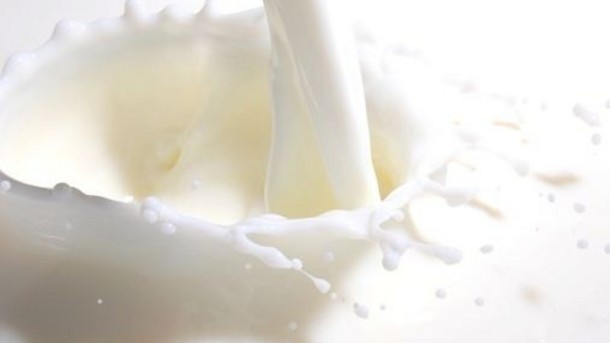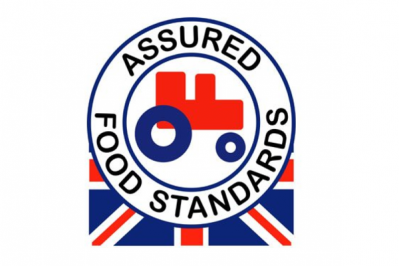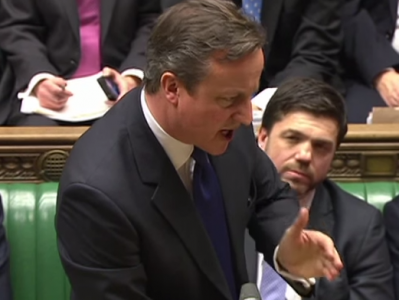British dairy farmers 'need greater price protection': MPs

The Environment, Food and Rural Affairs Committee (EFRA Committee) today called for protection provided against major retailers by the Groceries Code Adjudicator (GCA) to be extended to all dairy farmers and small-scale producers.
The EFRA Committee, chaired by Anne McIntosh, MP for Thirsk and Malton, also urged Westminster to grant GCA - the watchdog that oversees the relationship between supermarkets and their suppliers - the power to fine retailers.
"The vast majority of dairy farmers fall outside the protection offered by the Groceries Code Adjudicator," said McIntosh. "She can only investigate complaints involving direct suppliers to the big 10 supermarket and retailers, and as most milk production is small-scale, that excludes most dairy farmers."
"The EFRA Committee thought that was wrong when the GCA was set up in 2013, and events since then justify our view that her remit should be extended to include small-scale suppliers, whether or not they have a direct relationship with the ultimate seller of their produce."
It also recommended a European Union (EU)-wide review of the milk intervention price, urged suppliers to consider forming producer organisations "to increase their market clout", and called on the British government to help the sector "tap more worldwide export opportunities" and press for "clearer" country of origin labelling (COOL).
"Frequent, sharp and unpredictable"
UK milk prices dropped substantially in the second half of 2014 as a result of global volatility.
In November 2013, the average UK milk price stood at 34.55 pence per litre (ppl), according to the Department for Environment, Food and Rural Affairs (Defra). First Milk, which last week delayed milk payments for two weeks, is from February 1 offering its suppliers 21.57ppl - way below reported production costs of 30ppl.
The number of British dairy farmers is, as a result of this volatility, expected to fall below 10,000 - down from more than 35,000 in 2005.
"Frequent, sharp and unpredictable rises and falls in milk price are driving dairy farmers out of business every week," said McIntosh.
"The volatility of worldwide and domestic milk markets is making financial planning and investment impossible for small-scale producers unable to hedge against changes beyond their control."
Britain's leading retailers have been accused of squeezing suppliers by driving the cost of milk down to as little as 89p for a four-pint bottle.
Commenting on today's EFRA Committee recommendations, the British Retail Consortium (BRC), which represents the likes of Tesco, Asda and Morrisons, insisted retailers, not farmers, adsorb the impact of price reductions.
"Some individual retailers have reduced the price of milk charged to consumers in store but they alone are paying for the price reduction - not farmers," said Andrew Opie, director of food and sustainability, BRC
"In fact, retailers continue to pay the highest prices in the market to farmers regardless of the price they charge their customers. Furthermore, retailers have constructed dedicated supply arrangements with dairy processors for their milk supplies to ensure they pass the best prices back to the farmers."
Industry response
Dairy UK, which represents the interest of the entire British dairy supply chain, and the National Farmers Union (NFU) have welcomed the EFRA Committee recommendations.
“We are all aware of the short term issues currently facing the UK dairy sector and the implications for dairy farmers," said Rob Harrison, chairman, National Farmers Union (NFU) dairy board.
"While none of these recommendations are new, I do believe that Defra now needs to deliver on these actions to help ensure a fairer, more sustainable dairy industry going forward.”
Dairy UK CEO, Judith Bryans, meanwhile welcomed the EFRA Committee call for help from the government to boost exports.
“The Committee clearly recognised the fact that the main driver for the downturn in milk prices is volatility in global markets and there should be greater promotion of UK dairy produce,” said Bryans.
“In particular, we support the Committee’s recommendation that Defra explore practical steps to help the export of UK dairy products, and there are clearly identifiable areas where government can help, such as the simplification of export documentation and the funding of foreign inspection visits.”
To see the full EFRA Committee report, click here.








